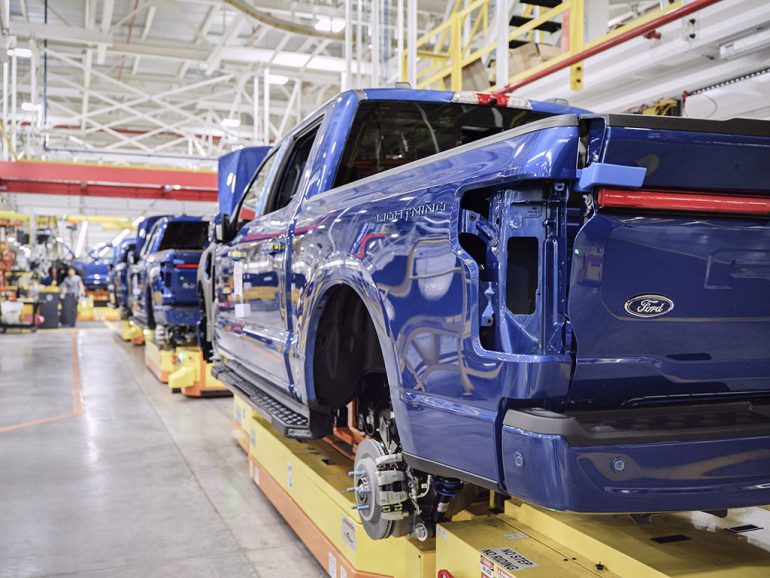
Ford Motor Company announced delays in the production of electric trucks and SUVs in North America due to a global slowdown in electric vehicle (EV) demand. The automaker revealed that it would postpone the launch of three-row EVs in Canada and its next-generation electric pickup truck in Tennessee. The decision reflects Ford’s commitment to ensuring the profitability of its EV business while navigating shifts in market demand.
Ford’s CEO, Jim Farley, emphasized the company’s strategic focus on scaling a profitable EV business and utilizing capital wisely. Despite incurring significant losses in its EV division in 2023, Ford aims to introduce hybrid electric vehicles across its gas-powered lineup by 2030. The company’s decision to delay EV launches underscores its cautious approach, intending to introduce new models only when they can achieve profitability.
Specifically, Ford will defer the launch of a large EV SUV in Ontario to 2027, allowing for further development of the consumer market for three-row EVs and leveraging advancements in battery technology. Similarly, deliveries of an all-new EV truck from a Tennessee plant will be postponed until 2026, with production gradually increasing to ensure quality standards.
This delay aligns with Ford’s strategy to adapt to evolving regulatory and market dynamics. The decision coincides with recent revisions by the Environmental Protection Agency, which softened EV requirements starting in 2027 and provided incentives for plug-in hybrid vehicles. Despite the delays, Ford remains committed to its plans for EV production, including the retooling of its Ontario plant as part of its agreement with Canada’s Unifor union.
Ford’s announcement follows similar decisions by other automakers, such as General Motors delaying production of electric pickup trucks in Michigan. These delays highlight the challenges and uncertainties facing the automotive industry as it transitions to electrification, underscoring the importance of strategic planning and adaptation in the face of evolving market conditions.

Lloyd Tobias is a seasoned automotive journalist and passionate enthusiast with over 15 years of experience immersed in the world of cars. Whether it’s exploring the latest advancements in automotive technology or keeping a close pulse on breaking industry news, Lloyd brings a sharp perspective and a deep appreciation for all things automotive. His writing blends technical insight with real-world enthusiasm, making his contributions both informative and engaging for readers who share his love for the drive. When he’s not behind the keyboard or under the hood, Lloyd enjoys test driving the newest models and staying ahead of the curve in an ever-evolving automotive landscape.